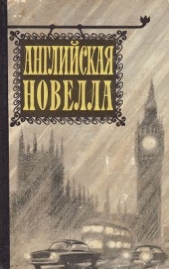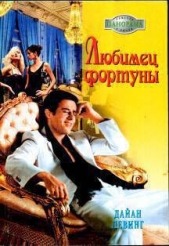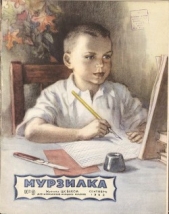Саранча. Колдовство не продаётся

Саранча. Колдовство не продаётся читать книгу онлайн
Два рассказа известной писательницы, лауреата Нобелевской премии по литературе Дорис Лессинг об англичанах в Африке — "Саранча" И "Колдовство не продаётся". Вошли в сборник "Английская новелла" (Л., 1961). В качестве бонуса — тексты на языке оригинала ("A Mild Attack of Locusts" и "No Witchcraft for Sale").
Внимание! Книга может содержать контент только для совершеннолетних. Для несовершеннолетних чтение данного контента СТРОГО ЗАПРЕЩЕНО! Если в книге присутствует наличие пропаганды ЛГБТ и другого, запрещенного контента - просьба написать на почту [email protected] для удаления материала
In the meantime, out in the pelting storm of insects, her husband was banging the gong, feeding the fires with leaves, the insects clinging to him all over — she shuddered. 'How can you bear to let them touch you? she asked. He looked at her, disapproving. She felt suitably humble — just as she had when he had first taken a good look at her city self, hair waved and golden, nails red and pointed. Now she was a proper farmer's wife, in sensible shoes and a solid skirt. She might even get to letting locusts settle on her — in time.
Having tossed back a whisky or two, old Stephen went back into the battle, wading now through glistening brown waves of locusts.
Five o'clock. The sun would set in an hour. Then the swarm would settle. It was as thick overhead as ever. The trees were ragged mounds of glistening brown.
Margaret began to cry. It was all so hopeless — if it wasn't a bad season, it was locusts, if it wasn't locusts, it was army- worm, or veld fires. Always something. The rustling of the locust armies was like a big forest in the storm, their settling on the roof was like the beating of the rain, the ground was invisible in a sleek brown surging tide — it was like being drowned in locusts, submerged by the loathsome brown flood. It seemed as if the roof might sink in under the weight of them, as if the door might give in under their pressure and these rooms fill with them — and it was getting so dark… she looked up. The air was thinner, gaps of blue showed in the dark moving clouds. The blue spaces were cold and thin: the sun must be setting. Through the fog of insects she saw figures approaching. First old Stephen, marching bravely along, then her husband, drawn and haggard with weariness. Behind them the servants. All were crawling all over with insects. The sound of the gongs had stopped. She could hear nothing but the ceaseless rustle of a myriad of wings.
The two men slapped off the insects and came in.
'Well, said Richard, kissing her on the cheek, 'the main swarm has gone over.
'For the Lord's sake, said Margaret angrily, still half- crying, 'what's here is bad enough, isn't it? For although the evening air was no longer black and thick, but a clear blue, with a pattern of insects whizzing this way and that across it, everything else — trees, buildings, bushes, earth, was gone under the moving brown masses.
'If it doesn't rain in the night and keep them here — if it doesn't rain and weight them down with water, they'll be off in the morning at sunrise.
'We're bound to have some hoppers. But not the main swarm, that7s something.
Margaret roused herself, wiped her eyes, pretended she had not been crying, and fetched them some supper, for the servants were too exhausted to move. She sent them down to the compound to rest.
She served the supper and sat listening. There is not one maize-plant left, she heard. Not one. The men would get the planters out the moment the locusts had gone. They must start all over again.
'But what's the use of that? Margaret wondered, if the whole farm was going to be crawling with hoppers? But she listened while they discussed the new Government pamphlet which said how to defeat the hoppers. You must have men out all the time moving over the farm to watch for movement in the grass. When you find a patch of hoppers, small lively black things, like crickets, then you dig trenches around the patch, or spray them with poison from pumps supplied by the Government. The Government wanted them to cooperate in a world plan for eliminating this plague for ever. You should attack locusts at the source. Hoppers, in short. The men were talking as if they were planning a war, and Margaret listened, amazed.
In the night it was quiet, no sign of the settled armies outside, except sometimes a branch snapped, or a tree could be heard crashing down.
Margaret slept badly in the bed beside Richard, who was sleeping like the dead, exhausted with the afternoon's fight. In the morning she woke to yellow sunshine lying across the bed, clear sunshine, with an occasional blotch of shadow moving over it. She went to the window. Old Stephen was ahead of her. There he stood outside, gazing down over the bush. And she gazed, astounded — and entranced, much against her will. For it looked as if every tree, every bush, all the earth, were lit with pale flames. The locusts were fanning their wings to free them of the night dews. There was a shimmer of red-tinged gold light everywhere.
She went out to join the old man, stepping carefully among the insects. They stood and watched. Overhead the sky was blue, blue and clear.
'Pretty, said old Stephen, with satisfaction.
Well, thought Margaret, we may be ruined, we may be bankrupt, but not everyone has seen an army of locusts fanning their wings at dawn.
Over the slopes, in the distance, a faint red smear showed in the sky, thickened and spread. "There they go, said old Stephen. 'There goes the main army, off South.
And now from the trees, from the earth all round them, the locusts were taking wing. They were like small aircraft, manoeuvring for the take-off, trying their wings to see if they were dry enough. Off they went. A reddish-brown steam was rising off the miles of bush, off the lands, the earth. Again the sunlight darkened.
And as the clotted branches lifted, the weight on them lightening, there was nothing but the black spines of branches, trees. No green left, nothing. All morning they watched, the three of them, as the brown crust thinned and broke and dissolved, flying up to mass with the main army, now a brownish-red smear in the Southern sky. The lands which had been filmed with green, the new tender mealie plants, were stark and bare. All the trees stripped. A devastated landscape. No green, no green anywhere.
By midday the reddish cloud had gone. Only an occasional locust flopped down. On the ground were the corpses and the wounded. The African labourers were sweeping these up with branches and collecting them in tins.
'Ever eaten sun-dried locust? asked old Stephen. 'That time twenty years ago, when I went broke, I lived on mealiemeal and dried locusts for three months. They aren't bad at all — rather like smoked fish, if you come to think of it.
But Margaret preferred not even to think of it.
After the midday meal the men went off to the lands. Everything was to be replanted. With a bit of luck another swarm would not come travelling down just this way. But they hoped it would rain very soon, to spring some new grass, because the cattle would die otherwise — there was not a blade of grass left on the farm. As for Margaret, she was trying to get used to the idea of three or four years of locusts. Locusts were going to be like bad weather, from now on, always imminent. She felt like a survivor after the war — if this devastated and mangled countryside was not ruin, well, what then was ruin?
But the men ate their supper with good appetites.
'It could have been worse, was what they said. It could be much worse.
No Witchcraft for Sale
The Farquars had been childless for years when little Teddy was born; and they were touched by the pleasure of their servants, who brought presents of fowls and eggs and flowers to the homestead when they came to rejoice over the baby, exclaiming with delight over his downy golden head and his blue eyes. They congratulated Mrs Farquar as if she had achieved a very great thing, and she felt that she had — her smile for the lingering, admiring natives was warm and grateful.
Later, when Teddy had his first haircut, Gideon the cook picked up the soft gold tufts from the ground, and held them reverently in his hand. Then he smiled at the little boy and said: 'Little Yellow Head'. That became the native name for the child. Gideon and Teddy were great friends from the first. When Gideon had finished his work, he would lift Teddy on his shoulders to the shade of a big tree, and play with him there, forming curious little toys from twigs and leaves and grass, or shaping animals from wetted soil. When Teddy learned to walk it was often Gideon who crouched before him, clucking encouragement, finally catching him when he fell, tossing him up in the air till they both became breathless with laughter. Mrs Farquar was fond of the old cook because of his love for the child.

























